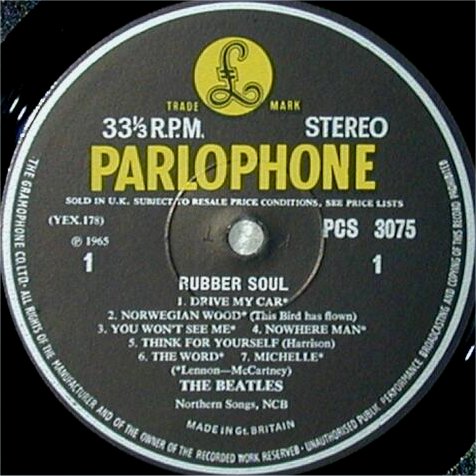 Record Collecting – A Guide to the Fundamentals
Record Collecting – A Guide to the Fundamentals
Hot Stamper Pressings of the Music of the Beatles Available Now
It is our strongly held belief that if your equipment (regardless of cost) or your critical listening skills do not allow you to hear the kinds of sonic differences among pressings we describe, then whether you are just getting started in audio or are a self-identified Audio Expert writing for the most prestigious magazines and websites, you still have a very long way to go in this hobby.
Purveyors of the old paradigms — original is better, money buys good sound — may eventually find their approach to records and equipment unsatisfactory (when it isn’t just plain wrong), but they will only do so if they start to rely more on empirical findings and less on convenient theories and received wisdom.
A reviewer most of us know well is clearly stuck in the Old Paradigm, illustrated perfectly by this comment:
It’s not my pleasure to be so negative but since I have a clean UK original (signed for me by George Martin!) I’ll not be playing this one again. Yes, there are some panning mistakes and whatever else Martin “cleaned up” but really, sometimes it’s best to leave well-enough (and this album was well-enough!) alone.
We can’t imagine how anyone can have a system in this day and age that can obscure the flaws of the original Parlophone pressings of Rubber Soul (or any other Yellow and Black label Parlophone pressing for that matter, other than Yellow Submarine and Oldies but Goldies).
[Here is another exception to that “rule.”]
This reviewer apparently does (as do some of our customers, truth be told), but we have something very different indeed. One might even consider it the opposite of such a system.
Our system is designed to relentlessly and ruthlessly expose the flaws of every record we play.
Only the best of the best can survive that level of scrutiny. Our system (comprising equipment, setup, tweaks, room treatments, electricity) operates at the highest level of fidelity we have been able to achieve to date. We are constantly making improvements to our playback system in search of even better sound.
Real Progress
But wait a minute, who are we to talk about being fooled? Bear in mind that as recently as 2000 or so we were still recommending DCC and other Heavy Vinyl pressings. These are records that, with few exceptions, I would have a hard time sitting through nowadays.
My system couldn’t show me how colored and lifeless they were then, but it sure can now.
It’s amazing how far you can get in 10 years [now 20] if you’re obsessive enough and driven enough, and are also willing to devote huge amounts of your time and effort to the pursuit of better audio. This will be especially true if you are perfectly happy to let your ears, not your brain, inform your understanding of the sound of the records you play.
If we thought like most audiophiles, that money buys good sound and original pressings are usually the best, there would be no such thing as Hot Stampers. Old thinking and wrong thinking can really slow down your progress.
Follow our advice and you will be amazed at the positive changes that are bound to come your way.
Training Your Ears
Of course, we should note that it helps to have a dedicated full time staff doing shootouts, including a full-time record cleaning person. All of the members of the listening panel were musicians with already well-trained ears when we hired them. From the start they had no trouble appreciating the differences between pressings.
I, on the other hand, am not a musician. Since the 70s, I’ve simply worked at trying to get my stereo to sound more like live music. Over many years, as it slowly improved, it allowed me to hear more and more of what was really on my records. I slowly gained the skills I needed to do the kind of critical listening comparisons that are currently the heart of our business. Let me be the first to admit it was rough going for about the first twenty five years. (Getting rid of my old tube system in the 2000s was a great leap forward.)
It has been my experience that most audiophiles are in that same non-musician boat. The problem seems to be that stereos are not nearly as good at teaching these skills as musical instruments are. Unless you are of an experimental mind and are willing to devote a great deal of your time and money to the audio game, you are unlikely to develop the skills necessary to critically evaluate recordings at the highest levels.
Unfortunately, playing into this vicious cycle, those same critical listening skills are the very ones you need to make your stereo revealing enough so that even subtle differences between pressings become not just clear, but obvious. Better ears lead to better stereos, but bad stereos make it hard to develop better ears. That’s why I made so many mistakes and learned so little in my first twenty years as an audiophile.
Further Reading
- More on the subject of bad tube mastering
- More reviews and commentaries for Rubber Soul
- Important lessons we learned by experimenting with records
